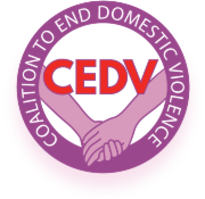Government officials say they have little control over the Safe Passage shelter — the only one for abused women and their children in Prince George’s — because it is privately operated.
But shelter residents, advocates and former employees say the state and the county have missed multiple opportunities to crack down on failures, blinded by their dependence on the facility and close ties with the Family Crisis Center of Prince George’s County, which operates it.
By law, marriage license fees collected by the county must be directed to the crisis center, guaranteeing funding for the 55-bed shelter, last year totaling $385,000. The center receives hundreds of thousands of dollars more in county and state grants to help fund the shelter and provide other services to abuse victims, according to government records. Its annual operating budget, including the money from the marriage license fees, is $1.3 million.
The latest problems at Safe Passage became public in December. A group of nearly two dozen women contacted news organizations to air their concerns , resulting in the temporary closure of the shelter and the resignation of its director, Sophie Ford.
Residents described mice scurrying from the cushions when people sat on the sofa and fungus blocking the bathtub drains. Mold in the walls gave them rashes, bedrooms were frigid at night and donated food was often spoiled, the women said.
“It was a living hell,” said Jane, 38, who like others interviewed declined to give her last name, to stay hidden from her abusive former partner. She was part of a group of dozens of women and children moved from the shelter to a hotel just before Christmas.
In written responses to questions, Ford said an inspection late last year found no mold in the shelter. She attributed heating problems to ducts that were obstructed and thermostats that were tampered with and blamed the crisis center’s board for a lack of financial support and “thought leadership.”
At a hearing in February, members of the Prince George’s County Council grilled crisis-center board members and officials from the county’s Department of Family Services, asking why funding was not allocated to maintain the shelter and buy food, and how the county failed to address problems for so long.
“This is a life-and-death kind of situation,” said council member Mary A. Lehman (D-District 1). “The degree of professionalism with which this facility is run is paramount.”
Board members did not respond to interview requests or declined to discuss past problems. In a statement, Family Services said the crisis center “has neglected its responsibilities to keep the facility clean and safe.”
The problems seemed like “deja vu” to Tim Buffaloe, chaplain of the New Life Advocacy Council, which helped shelter residents air similar complaints in 2015.
“This was a systemic problem,” Buffaloe said. “Members of the county [government] knew about those issues and determined to do nothing. They have re-victimized these families.”
A former resident of the Safe Passage shelter shows off a drawing her daughter made for her in a Maryland hotel room in February. Women and their children were housed at the hotel after the shelter was closed because of sanitation issues and other problems. (Bonnie Jo Mount/The Washington Post)
Politicians and public servants launched the Family Crisis Center in 1981. Elected officials and county bureaucrats took turns serving on the board. Fundraisers drew a who’s who of Prince George’s power brokers.
“It was like we were under the umbrella of the county government,” said Kinaya Sokoya, a licensed social worker who ran the nonprofit organization from 1990 to 2000. “We were very close.”
Since 2011, according to state government data, the crisis center has received more than $4.4 million from the Governor’s Office of Crime Control and Prevention to hire staffers, provide legal and Spanish-language services to domestic-violence victims, and create a 24-hour emergency hotline. There were also federal housing grants and state funding bills filed by Prince George’s lawmakers, including state Sen. Victor R. Ramirez (D) and former state delegate Jolene Ivey (D), who is now running for the county council.
Ramirez did not respond to requests for comment. Ivey said that as a former Family Crisis Center board member, she knew funding was an issue and wanted to help address domestic violence.
While the hotline has operated effectively, the Spanish-language services have been intermittent as personnel have come and gone, advocates say. According to monitoring reports and current and former shelter residents, the promised counseling services at times fell short or failed to materialize.
The monitoring reports, obtained by The Washington Post through a public records request, also show that certain areas of the shelter were closed to inspectors during some visits; in other cases, monitors noted concerns but said shelter officials had launched plans to address them.
Ford did not respond to questions about access. In her written responses to other questions, she acknowledged gaps in service because of staff turnover and vacancies but said she tried to address problems as they were brought to her attention.
County Executive Rushern L. Baker III (D) said he has searched for solutions, including merging the center with other domestic-violence organizationssuch as the District’s House of Ruth. But the county can do only so much, he said, since no one wants to see Safe Passage shut down.
“We’ve tried to work with them,” said Baker, who is running for governor. “But they are a private entity.”
Baker has submitted a bill to the Maryland General Assembly that would allow marriage license fees to be directed to entities other than the Family Crisis Center — a change that was recommended by the county’s Office of Ethics and Accountability in 2015 after the complaint by Buffaloe’s group sparked an investigation. The bill is awaiting a committee hearing.
Family Crisis Center officials say much of their funding is specifically allocated for personnel costs, rather than food or repairs. There is no dedicated funding for maintenance, groceries or cleaning services, interim director Michele Williams said. She is seeking permission from the state to change that.
A spokesman for the Governor’s Coordinating Offices said the state relies on the county to ensure the shelter is managed properly.
“Our oversight is programmatic in nature,” spokesman Robert James said. Like other officials, he noted that Safe Passage is “the only shelter in the county that provides services of its kind to victims of domestic violence.”
After a fire destroyed the original Family Crisis Center shelter in the late 1990s, the county government helped buy and renovate a new property that became the current safe house.
“We gutted the place and built the house from the ground up,” Sokoya said.
She stepped down as director in 2000. By the time the board hired Malinda Miles in 2009, three more executive directors had come and gone. The nonprofit group had hundreds of thousands of dollars in debt and unpaid bills and the shelter was “in serious disrepair,” said Miles, who is mayor of the Prince George’s County city of Mount Rainier.
Miles left the shelter in 2013 after more board turnover. In late 2014, Ford was hired to replace her.
Shelter residents from that era could not be found for this report. But their stories live on in the files at Prince George’s County Circuit Court, where 10 women who sought help from Buffaloe’s group filed suit and requested a temporary restraining order against the shelter in early 2015. Two of the women said they were being kicked out of the facility; others said they were being denied help after trying to expose health and safety issues.
There were bugs, outdated fire safety equipment and contaminated water, according to the court records. Neither the air conditioners nor the elevator worked. DayStar Advanced Response Ministerial Operations, the outreach arm of Buffaloe’s New Life group, sent photos, affidavits and other documents to the county ethics office, the Maryland attorney general, state Senate President Thomas V. Mike Miller Jr. (D-Calvert) and others.
The ethics office confirmed fire-code violations, gaps in case management and poor treatment of residents by shelter employees, according to a report the office sent to Family Services. In each case, the report said, shelter managers attributed the problems to staffers who had since been replaced and told county officials that steps were being taken to address the issues.
Betty Hager Francis, chief administrative officer in the county’s Department of Health and Human Services, wrote a letter to the ethics office saying she was “confident” Ford’s leadership and team “will help to improve outcomes.”
The crisis center hired former state’s attorney Glenn F. Ivey to defend the organization in court and fight the request for a restraining order. Ivey, whose wife is the state lawmaker who had served on the crisis center’s board and sponsored bills to fund it, also sent Buffaloe a cease-and-desist letter that said the allegations against the shelter were defamatory.
Circuit Court Judge Albert W. Northrop asked the Women of Safe Passage, as they called themselves, to work out a solution with Glenn Ivey. The women soon dropped the fight.
“We saw a big elephant in the room and didn’t have a big-enough elephant gun to shoot it,” Buffaloe said.
Ivey told The Post that his legal efforts in the case centered on freeing up beds in the shelter so that women newly in crisis could seek refuge. He did not respond to later questions about why he sent the cease-and-desist letter.
Questions raised by Buffaloe’s group also drew the attention of the Maryland Network Against Domestic Violence, which contacted the Governor’s Office of Crime Control and Prevention, triggering an emergency site visit. A report from that visit mostly summarizes shelter procedures and funding needs and touts the recent arrival of Ford and Veronica Simmons, then the director of residential services.
“It appears that steps are being taken to move them in the right direction in making [the center] even more successful,” the report says.
The governor’s office recommended that the crisis center seek training from the anti-domestic-violence network. That organization’s president, Inga James, said the network reached out to the crisis center but never heard back.
Ford promised better bookkeeping, brought in new staffers and developed a facility repair plan. The team included shelter manager Keiyauna Stanley, who said Ford told her to buy kitchen appliances, set strict protocols for cleanliness and food preparation, and rewrite the staff policy manual.
But Stanley — who was fired last fall after making personal use of a shelter vehicle — says many of the purchases did not arrive.
Five donated computers were taken for a software upload and never returned, Stanley said. Water leaks and mold were painted over. Code violations piled up, according to monitoring reports.
By late 2017, Family Services was having trouble reaching Ford to schedule a quarterly site visit, according to a monitoring report. When monitors arrived, they found dangerous chemicals in reach of children and the nonworking elevator being used as a storage bin. Ford did not allow them into the living quarters.
“The shelter was not in good condition,” said the Nov. 29 report. “The floors, hallways, kitchen, play area and living room space was cluttered, dirty and dingy.”
Ford did not respond to questions about the site visit.
Stanley said some board members reached out to her last fall, saying their relationship with Ford had deteriorated. Other board members resigned. In November, board member Charlene Jacobs suggested that Stanley and other staff members file a whistleblower complaint so the board could initiate an investigation. That same week, Ford fired Stanley.
Ford said she took that action because Stanley made personal use of a car that had been donated to the shelter. Stanley acknowledges taking the car home and allowing a shelter employee to put Stanley’s license plates on it after Stanley’s car was towed. But she said Ford had allowed employees to take the car home in the past if they were using it to buy supplies or perform other work-related duties.
“I know that’s not why she really fired me,” Stanley said.
Once Stanley left, “everything just fell apart,” said former shelter resident Bea, 32. “We had no one.”
In December, the shelter residents contacted local media outlets. County and state inspectors arrived and found rooms that were unsanitary and poorly heated, and walls and hallways full of holes.
Officials initially said that the needed repairs were cosmetic and that the women would be brought back from the hotel within days. But it took until Feb. 9 for the shelter to reopen after passing a county inspection. The building had been deep-cleaned and organized, holes in the walls and ceilings were patched, the heat was fixed, and new lights and alarms above the doors were installed.
Fifteen new families have been served since the shelter reopened, with nine there as of Wednesday, Williams said. The shelter initially saved space in case any of the former residents wanted to return.
But the women at the hotel say they do not want to go back. They have completed interviews to receive government housing vouchers, and some have been placed in homes or apartments of their own.
“The conditions they were living in at the time were unacceptable, and it caused them to have a lot of distrust,” Williams told the council. “I wouldn’t expect them to trust us at all.”
In interviews, the women said their hotel feels like the refuge Safe Passage should have been. Church groups and members of the public donated Christmas gifts, meals, clothing and school supplies. The rooms are warm, the beds are clean, the food is edible.
“It’s better here,” said Jay, a mother of two who has acted as a de facto spokesman for the group. “I’m not going to complain.”
But she and others said they worry about a few women who were at the shelter when it closed and have since lost contact with the rest of the group. It is not clear where they are living.
Family Services spokeswoman Jermoni Dowd said that the county has spent more than $255,000 on hotel, food and other expenses for the women since they were moved from the shelter.
At the council hearing, Williams requested more funding for Safe Passage and asked lawmakers to reallocate $108,000 awarded last year so the crisis center could open an office in southern Prince George’s.
“We’re looking for big things from you,” council member Andrea C. Harrison (D-District 5) told Williams. “And we’re not going to accept any excuses, quite honestly.”
Source: https://www.washingtonpost.com/local/md-politics/mice-in-the-couches-mold-on-the-walls-years-of-problems-at-this-government-funded-shelter-for-abused-women/2018/03/21/a7933ec4-f4ca-11e7-a9e3-ab18ce41436a_story.html?utm_term=.94ecca930841


